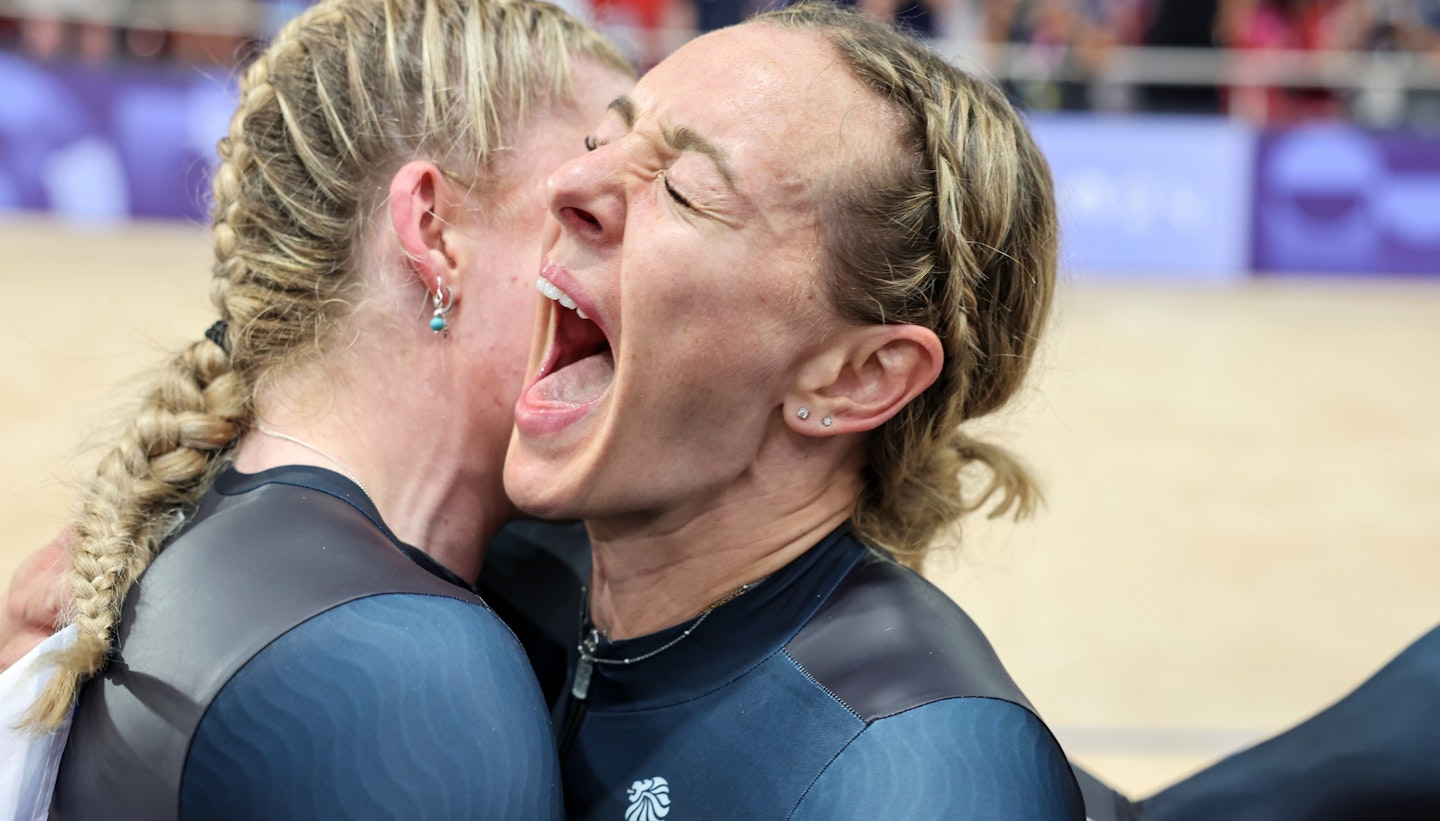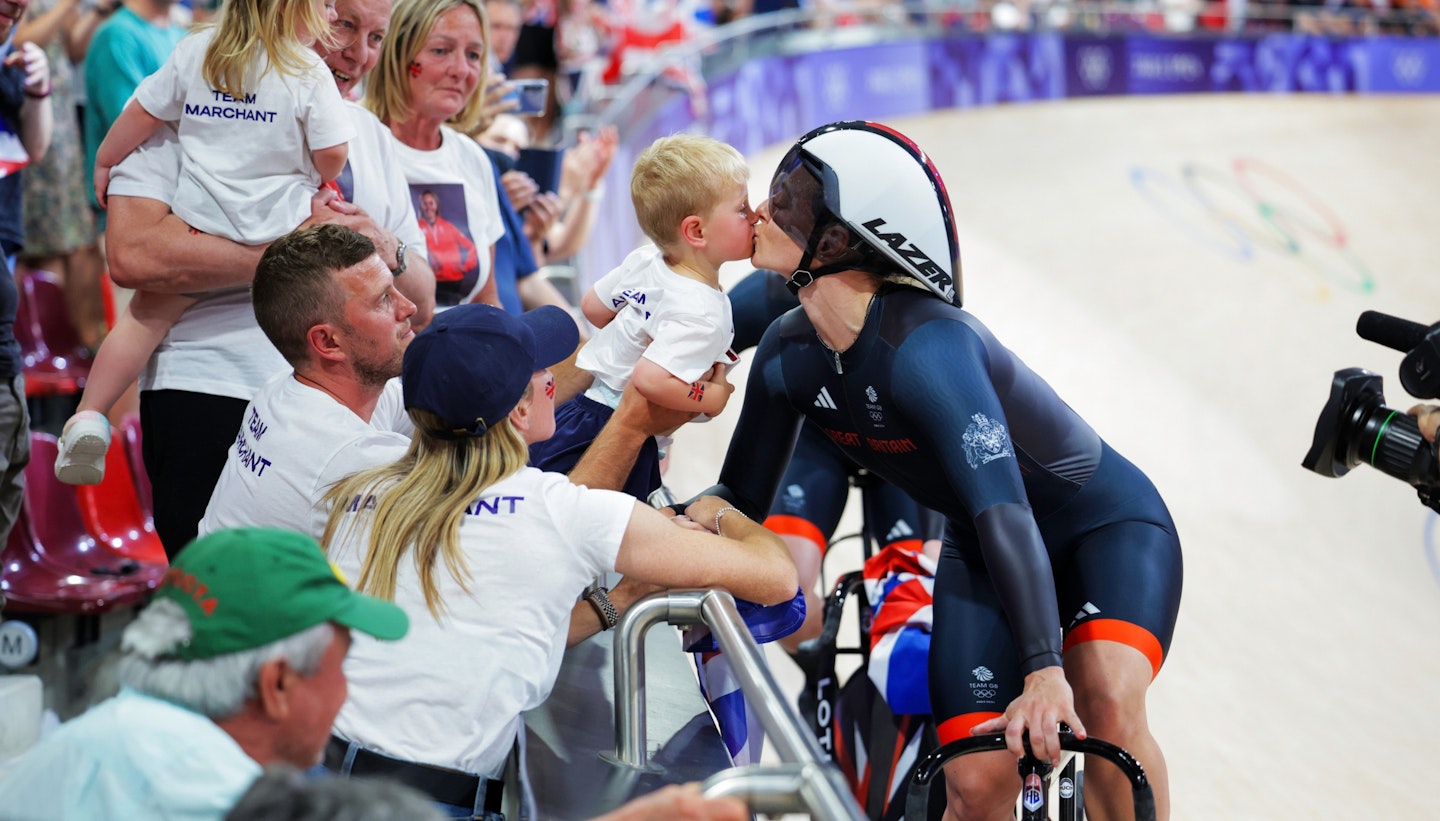Juggling motherhood and a demanding career might seem tough, but Katy Marchant, an Olympic gold medalist, is living proof that it's possible to achieve greatness in both. Two years after giving birth to her son, Arthur, Katy achieved a stunning victory at the recently concluded Paris Olympics 2024, securing gold in the women’s team sprint alongside Emma Finucane and Sophie Capewell. The team not only claimed the top spot but also shattered the world record three times.
In a world where societal expectations often force women to choose between their careers and family, Katy's journey, along with other inspiring GB athlete mums who competed, gives a refreshing perspective for mothers wanting to pursuing their goals outside of motherhood. However, the path is not always easy.
The Women’s Sports Foundation reports that female athletes face significant challenges, with 60% of female sports leaders experiencing sex discrimination. Research also shows that more female athletes than male athletesretire from their careers upon becoming parents.
In this interview, Katy Marchant talks about winning the Olympics, the highs and lows of her journey, and gives advice on how mums can succeed in both family and work.

How did it feel to cross the finish line, and how did working with Emma Finucane and Sophie Capewell help you succeed?
“Pure elation. We couldn’t believe it—we had actually achieved that. We knew we were capable of something special, but to nail that final ride like we did was incredible. We have worked so hard as a team to understand each other, respect each other’s ways of working, and build the best professional teamwork on the day.”
How did this year’s Olympics help you balance family life and sports?
For parent athletes, finding quality time with their children during competition can be tough. To help with this, Paris 2024 introduced the first-ever Olympic Village family space. Equipped with baby wipes and nappies, as well as areas for play and bonding, this space enables competing parent athletes to enjoy time with their young children in a setting designed to feel like home.
Katy felt particularly supported, saying “The Olympics are really starting to change the narrative and support families. It’s helping us become role models for future mums in sport. The family-friendly facilities and accommodations made a world of difference, allowing me to stay connected with my son while focusing on my performance.”
What were the challenges of balancing postpartum recovery with intense training?
"Fortunately, I was able to maintain a good level of training throughout my pregnancy, which meant my return went relatively smoothly. I was back on my bike within four weeks and gradually started building back toward intensity within about four months. The hardest part was managing the mum guilt—leaving him behind and allowing myself to have something that was just for me."
According to a survey by the American Psychological Association, 60% of mothers experience guilt when they take time for themselves or pursue personal goals without their children. While these feelings are common, they can be managed through self-compassion and by focusing on the bigger picture.
“It’s a real strength to be able to hold onto personal dreams while still wanting the best for your family. Absolutely go for it. I am 100% a better mum for being an athlete and 100% a better athlete for being a mum. It’s all about finding that balance and embracing the dual role.”
What were some of the toughest challenges you faced on your path to the Olympics and how did you overcome them?
“Logistics! They were huge, and the mum guilt was something I really struggled with. But I had to keep communicating and using my team around me to help overcome that. It took a good 12 months to find a good work-life balance, but persistence was key.”

When times got tough, what kept you motivated and driven to push forward?
“The biggest thing for me was knowing Arthur was always there for me, no matter what. Seeing the world through his eyes gave me perspective and motivation. He kept me balanced and pushed me to keep going when times were tough.”
Looking back, is there any advice you would give to your younger self or to other women who aspire to pursue their passions while raising a family?
“Follow your dreams. If you really want something, you can make it happen. Keep pushing when times get tough—resilience and persistence are so important. Motherhood doesn’t have to mean giving up on your passions; it can actually be the very thing that drives you to succeed. You can be a champion and a mum.”
Katy's message hits home for millions of mothers balancing family life with personal goals. Her story is not just about winning medals; it's about redefining what it means to pursue your dreams while embracing the joys and challenges of motherhood.
Her success at the Paris Olympics 2024 shows how resilience, teamwork, and the strong connection between a mother and her child can make a difference. For any mum wondering if you can have it all, Katy’s story proves that you can—and should—chase your dreams, no matter how big they are.
About the author
Anne Lora Scagliusi is a Senior Digital Writer at Mother & Baby. She is a Scotland-based journalist with over a decade of international writing experience, specialising in women’s health, maternal mental health, and wellness. Her work has been featured in Vanity Fair, Marie Claire, and Glamour and has appeared on several Vogue global editions. She is mum to a one-year-old bambino and lives between Italy and the UK.
